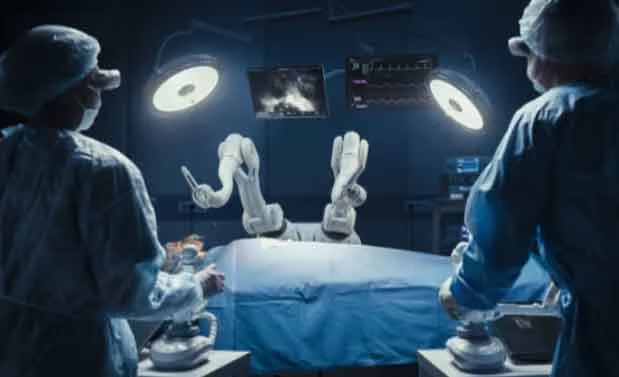The Future of Healthcare Technology and Innovation Shaping the Industry
As the world continues to evolve, so does the healthcare industry. Thanks to advancements in technology and innovation, the future of healthcare is being transformed in ways we could barely imagine just a few years ago.
Gone are the days when patients had to wait for hours to see a doctor. With telemedicine, patients can now receive healthcare services remotely, eliminating the need for unnecessary visits to doctors’ offices or hospitals. Telemedicine allows patients to consult with healthcare professionals through video calls, enabling diagnosis, treatment, and monitoring from the comfort of their own homes.
Additionally, the rise of wearables and smart devices has empowered individuals to take charge of their own health. From fitness trackers that monitor heart rate and sleep patterns to smartwatches that can detect irregularities in heart rhythm, these devices provide valuable data that can be shared with healthcare providers for a more personalized approach to treatment.
Enhancing Patient Care
Advancements in technology have greatly improved the quality of patient care. Artificial intelligence (AI) and machine learning algorithms are being used to analyze medical data and make accurate predictions for diagnosis and treatment. These algorithms can quickly sift through vast amounts of data to identify patterns and provide healthcare professionals with insights that can lead to more effective and personalized treatment plans.
In the operating room, robotic-assisted surgeries have become increasingly common. These surgeries allow for greater precision and control, resulting in shorter recovery times and improved patient outcomes. Robotic surgical systems, guided by skilled surgeons, have the potential to revolutionize the way surgeries are performed, reducing the risk of complications and improving overall surgical success rates.
Transforming Medical Research
Technology and innovation are also transforming the landscape of medical research. With the help of big data analytics and cloud computing, researchers can now analyze large datasets and gain valuable insights into disease trends, treatment effectiveness, and patient outcomes. This has the potential to accelerate the development of new treatments and therapies.
Furthermore, the use of virtual reality (VR) and augmented reality (AR) is revolutionizing medical education and training. VR and AR simulations provide medical students and healthcare professionals with immersive learning experiences, allowing them to practice procedures and gain valuable skills in a safe and controlled environment. This technology is not only improving the quality of education but also reducing the risk associated with traditional training methods.
Conclusion
The future of healthcare is undoubtedly being shaped by technology and innovation. From revolutionizing healthcare delivery and enhancing patient care to transforming medical research, these advancements are paving the way for a more efficient, effective, and patient-centered healthcare system.
As we embrace these technological advancements, it is crucial to remember that while technology and innovation play a significant role, the human touch and compassionate care will always remain at the heart of healthcare. By harnessing the power of technology and combining it with the expertise and empathy of healthcare professionals, we can create a future where everyone has access to high-quality healthcare that truly makes a difference in their lives.

